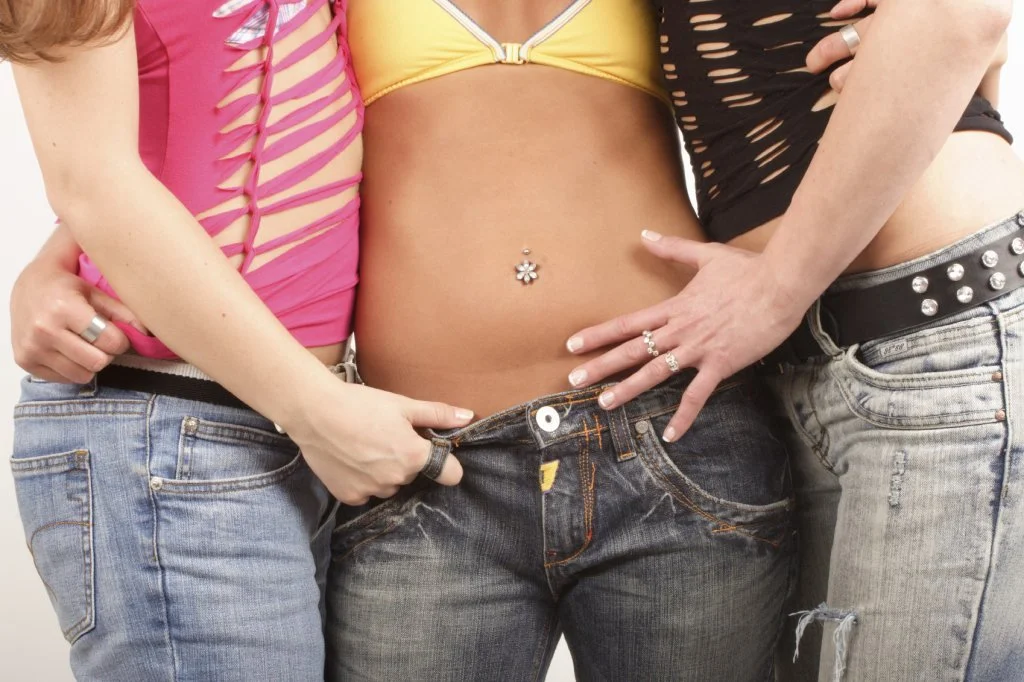HOOKUP NATION: Why Has Hooking Up Replaced Dating?
Whether you’re concerned about the young men and women in your life, reflecting on your own experiences, or contemplating the future of love and sex in general, you can’t help but wonder what’s driving the widespread cultural shift to hooking up versus dating. Why do young women engage in behaviors that often appear to be unsatisfying, coercive and risky? I recently authored an article about college hookup culture up in M.D.Update, a state-wide business magazine for Kentucky physicians and healthcare professionals. If you want to get plugged in about what sexual and relationship practices have changed, click here. To understand why hooking up has replaced dating as the dominant social norm, keep reading as I explore this topic further with Gil Dunn, publisher of M.D.Update.
What is causing the shift from dating to hooking up? Why is it happening now?
Researchers in psychology, sociology, education and medicine are exploring a number of theories about the causes and timing of hookup culture. Richard Whitmire, who wrote A Tough Time to Be A Girl, suggests the gender imbalance (56% female) on college campuses as a factor. Justin Garcia at Indiana University proposes that hooking up may simply be a response to both men and women marrying later than ever — age 26 for females and age 29 for males.
So hooking up may serve as a “delay tactic” for students pursuing a professional career?
Interestingly, some female students claim that it’s not the feminists or “frat stars” driving the casual sex culture — it’s their parents. Some girls translate the message to be independent, self-sufficient and pursue their own careers to mean they need to delay having a serious relationship. Hannah Rosin, author of The End of Men, describes this as a time of “living in a world where they can have sexual adventure without commitment or all that much shame, and where they can enter into temporary relationships that don’t get in the way of success.”
So women are not always unwilling or reluctant participants in hookups?
It depends on who you ask. As one female student explained, “The girls adapt a little bit, because they stop expecting that they’re going to get a boyfriend… So they hook up and try not to get attached.” That’s the down side — an association between women’s hookup behavior and depressive symptoms, low self-esteem and sexual regret, along with an increased risk of sexual victimization and STD.
Another female student said, “It was empowering, to have that kind of control. Guys were texting and calling me all the time, and I was turning them down. I really enjoyed it! I had these options to hook up if I wanted them, and no one would judge me for it.”
Some female students claim that it’s not the feminists or “frat stars” driving the casual sex culture — it’s their parents..
So some young women totally embrace hooking up. As far as they’re concerned, they are sexually confident and empowered women. Philosophically, they’re trying to integrate traditional femininity, including the sexual power of women, with feminist ideas of cultural, social and gender equality — they’re “lipstick feminists.”
What is lipstick feminism?
It’s a backlash against the negative stereotypes of the “ugly feminist” and the “anti-sex feminist.” A lipstick feminist appreciates the progress made by early feminists and believes it is now possible to reclaim aspects of traditional femininity, including wearing make-up and sexy clothes, without compromising their quest for empowerment and equality. In fact, they see the practice of sexual allure as a form of social power in their interactions with men.
Is this confusing sexual power with real-world power?
I think it’s natural to want to feel attractive and desirable and I’m glad to see the intention to reclaim a place for traditionally feminine qualities along with feminist equality and empowerment. But I’m also aware that in the past three decades there’s been a significant increase in self-objectification — the learned tendency for women to see themselves primarily through men’s eyes and evaluate themselves strictly on their appearance. The increase in self-objectification started around the time that personal computers became affordable and internet pornography became widely available. Researchers Caroline Heldman and Lisa Wade have also pointed to the “pornification” of mass media — the increasingly thin line between pornography and mainstream media.
Ariel Levy refers to the proliferation of sexually explicit images and themes as a “raunch culture” that encourages young women to sexually objectify other women and themselves. Levy gives examples of young girls performing lap dances for boys at school dances, performing oral sex on them without reciprocation and making out with each other in front of them. Local gynecologists tell me they see it here in the form of freaked-out moms who find their daughters are “sexting” photos of their labia and in the rise of chlamydia and oral gonorrhea from girls giving blow jobs to boys.
Does a religious background or attending a religious school affect hookup behavior?
Simply having religious beliefs or being affiliated with a religious denomination or school doesn’t seem to make any difference. Elizabeth Stoddard and a number of other researchers have found that the hookup cultures at Catholic colleges are nearly identical to secular universities. However, church attendance does have a dampening effect on the decision to engage in hookup behavior — The more frequently students attended church services, the less likely they were to engage in hookups.
Donna Freitas’ research found that only evangelical Christian colleges, where faith is woven into the personal lives and romantic relationships of students, seem to buck the hookup trend. In contrast, she found that students at Catholic schools spoke about religion as an isolated subject, thus compartmentalizing it and separating it from their sexual choices.
How do you see this trend playing out for women?
I think of the Penn student who said, “Ten years from now, no one will remember — I will not remember — who I have slept with… I will remember my accomplishments and places my name is hung on campus.” But if she’s one of the one in four students who graduates with an STD, she’ll remember that for a long time. Unfortunately, this generation doesn’t seem to know that unprotected oral and anal sex carries a significant risk of infection. That may explain the chlamydia outbreak at a Texas high school with abstinence-only sex education.
“The girls adapt a little bit, because they stop expecting that they’re going to get a boyfriend… So they hook up and try not to get attached.”
I also think of the referrals for body-centered therapy I receive from one of my colleagues, Susan Dunn, who has a physical therapy practice specializing in women’s issues. She finds that about half the women she treats for pelvic pain have had some kind of “unwanted sexual contact.” When women participate in a hookup culture, they put themselves at increased risk — sometimes with long-term and far-reaching effects.
Then there’s the case of Karen Owen, the Duke University graduate who chronicled her sexual exploits with members of the Duke lacrosse team in a Power Point presentation that went viral. Owen held herself up as a female counter-part to Tucker Max, the unofficial King of Duke “raunch culture.” Some celebrated her as a boundary-breaking, sexually empowered new woman, while her detractors called her a whore and railed at her as an example of everything wrong with society and women. However, I found the most interesting commentary to come from Tucker Max himself: “A woman can be sexually active and explore lots of men, and do it in a way that is empowering — but the key to that is self-awareness. Karen has none of that. She’s the one getting exploited, but she doesn’t understand her own emotions enough to see it… Calling her empowered is an embarrassing disservice to the women who really are empowered.”
What advice do you have for young women?
I think Tucker Max has described the challenge young women are facing — how to develop self-awareness and self-regulation, as well as savvy and skill in how sexual boundaries work — so they can make informed choices in an empowered and agentic way.
What insights do you have for parents, educators and health professionals?
Most young men and women appear to want emotional connection — We may not like the way they are seeking it and there may be some serious repercussions, but both men and women report the potential to form a relationship as a main motivation for hooking up. Lisa Wade found that about three-quarters of students will form long-term monogamous relationships while in college. Some of these relationships will start with a hookup, in a process that goes something like this: A first hookup progresses to a “regular hookup” to something students call “exclusive” — which means monogamous but not in a relationship — and then, finally, they have “the talk” and form a relationship.



